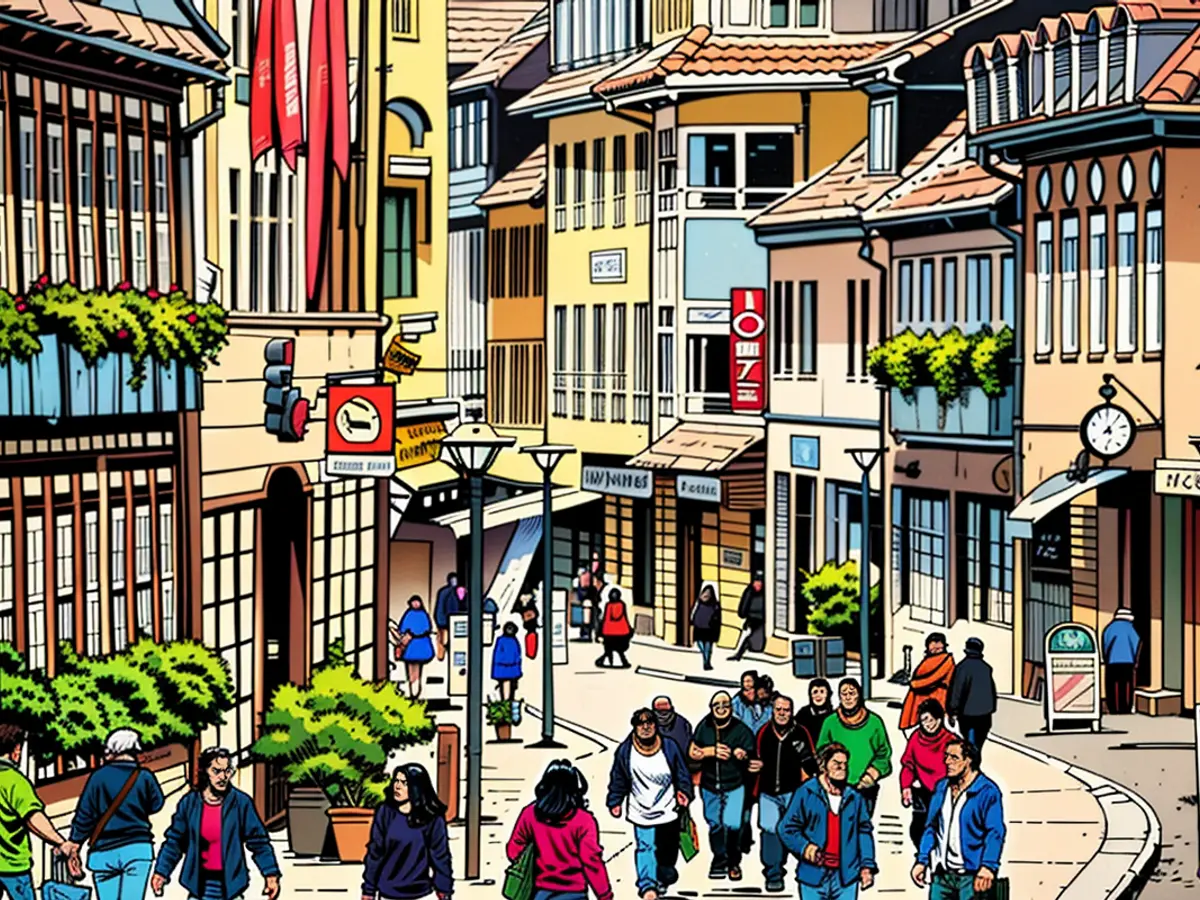Municipalities - Südsthüringen Obercenter: Cities hope for new government
I have been engaged in a long-standing dispute over the establishment of a supra-regional center in South Thuringia between the political elites of Suhl, Zella-Mehlis, Oberhof, and Schleusingen, pushing for a power shift in the Free State. The decision of the red-red-green government cabinet to form a supra-regional center in South Thuringia, including Schmalkalden and Meiningen, is deemed arbitrary and irrelevant by Suhl's Mayor André Knapp (CDU).
A newly elected state government must not only reconsider this decision but also correct it, says Knapp. The current red-red-green state government is working against the interests of the four cities.
Mayor: Government has "slapped people in the face"
Mayor André Henneberg of Schleusingen (Free Voters) states that with their decision for a Six-City-Center, the state government has "slapped in the face" the approximately 65,000 inhabitants of Suhl, Zella-Mehlis, Oberhof, and Schleusingen. Since these four cities began working on the establishment of a supra-regional center in 2018, many concepts have already been developed. "And we shouldn't let any state government destroy that," says Henneberg.
The Thuringian State Government decided in early July, against strong opposition from the region, to establish a supra-regional center in the southern part of the country, comprising Suhl, Zella-Mehlis, Schleusingen, Oberhof, Meiningen, and Schmalkalden. For years, it had been discussed whether a Six-City- or a Four-City-Center should be established in South Thuringia.
Mayors Knapp and Henneberg, as well as Mayors Daniel Fischer (non-partisan) of Oberhof and Torsten Widder (non-partisan) of Zella-Mehlis, also argue that a Six-City-Center makes no sense because there is no common territorial boundary between the four cities and Schmalkalden and Meiningen.
Supra-regional centers have important service functions for the region and also offer recreational facilities that are not available in smaller towns.
- Despite the CDU Mayor Andreé Knapp's opposition, the red-red-green government decided to establish a supra-regional center in South Thuringia, including Schmalkalden and Meiningen.
- The decision to form a supra-regional center in Thuringia, affecting cities like Suhl, Zella-Mehlis, Oberhof, and Schleusingen, was viewed as arbitrary and irrelevant by Mayor Knapp.
- Mayor André Henneberg of Schleusingen, representing the Free Voters, criticized the state government's decision for a Six-City-Center, arguing it was a slap in the face for the approximately 65,000 inhabitants of the four cities.
- The Mayors of Suhl, Zella-Mehlis, Oberhof, Schleusingen, and Thuringia's Education Minister André Knapp advocated for a Four-City-Center in Southern Thuringia, as they believed a Six-City-Center didn't make sense due to the lack of common territorial boundaries.
- The establishment of a supra-regional center in southern Thuringia has significant service functions for the region, offering recreational facilities that are not readily available in smaller communes.








